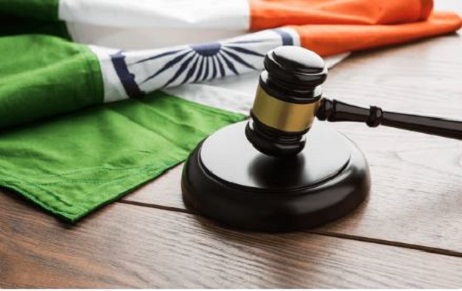Introduction Special Purpose Acquisition Companies (SPACs), also known as “blank-check companies”, are publicly listed traded…
Research Exemption under Patent laws in India and USA
Whenever a patent is granted, patentee gets a right to prevent third parties from doing certain activities without the permission of the Patent Owner. Exercising any of the rights without permission of the Patentee constitutes the infringement and infringer is liable to be prosecuted in the court of law. However, rights granted to the Patentee are not the absolute rights and Patent Act provides for some exceptions. Section 48 and Section 107A of the Indian Patent Act, 1970 have been reproduced below which respectively provide for rights of the Patentees and certain activities that do not constitute infringement.
Section 48:
Rights of patentees.—
Subject to the other provisions contained in this Act and the conditions specified in section 47, a patent granted under this Act shall confer upon the patentee—
(a) where the subject matter of the patent is a product, the exclusive right to prevent third parties, who do not have his consent, from the act of making, using, offering for sale, selling or importing for those purposes that product in India;
(b) where the subject matter of the patent is a process, the exclusive right to prevent third parties, who do not have his consent, from the act of using that process, and from the act of using, offering for sale, selling or importing for those purposes the product obtained directly by that process in India:
Section 107 A:
Certain acts not to be considered as infringement.—For the purposes of this Act,—
(a) any act of making, constructing, using, selling or importing a patented invention solely for uses reasonably related to the development and submission of information required under any law for the time being in force, in India, or in a country other than India, that regulates the manufacture, construction, use, sale or import of any product;
(b) importation of patented products by any person from a person who is duly authorised under the law to produce and sell or distribute the product,
shall not be considered as a infringement of patent rights.
Getting into the background of the U.S. Patent laws, section 271 (e) (1) provides the counter part of the section 107A of the Indian Patent Act. This section was introduced after Hatch Waxman Act, 1984. Intention of this article is to compare and contrast the scope of the research exemption under the Patent laws (aka Bolar provision after the Roche Products, Inc. v. Bolar Pharmaceutical Co.) of India and USA.
Section 271 (e) (1)
It shall not be an act of infringement to make, use, offer to sell, or sell within the United States or import into the United States a patented invention (other than a new animal drug or veterinary biological product (as those terms are used in the Federal Food, Drug, and Cosmetic Act and the Act of March 4, 1913) which is primarily manufactured using recombinant DNA, recombinant RNA, hybridoma technology, or other processes involving site specific genetic manipulation techniques) solely for uses reasonably related to the development and submission of information under a Federal law which regulates the manufacture, use, or sale of drugs or veterinary biological products.
Comparison of Indian and USA law w.r.t. the products for which exemption is granted:
While India allows research exemption for any product, USA restricts it to drugs or veterinary biological products other than a new animal drug or veterinary biological product (as those terms are used in the Federal Food, Drug, and Cosmetic Act and the Act of March 4, 1913) which is primarily manufactured using recombinant DNA, recombinant RNA, hybridoma technology, or other processes involving site specific genetic manipulation techniques.
Comparison of Indian and USA law w.r.t. the law under which submission is to be made:
India allows research to be made for submission of information required under any law for the time being in force, in India, or in a country other than India. However, USA restricts it to the submission under a Federal law.
It’s very clear that though laws of both India and USA have provided for Bolar provision, laws of USA are more tilted in favour of Patentee as compared to the situation in India.



